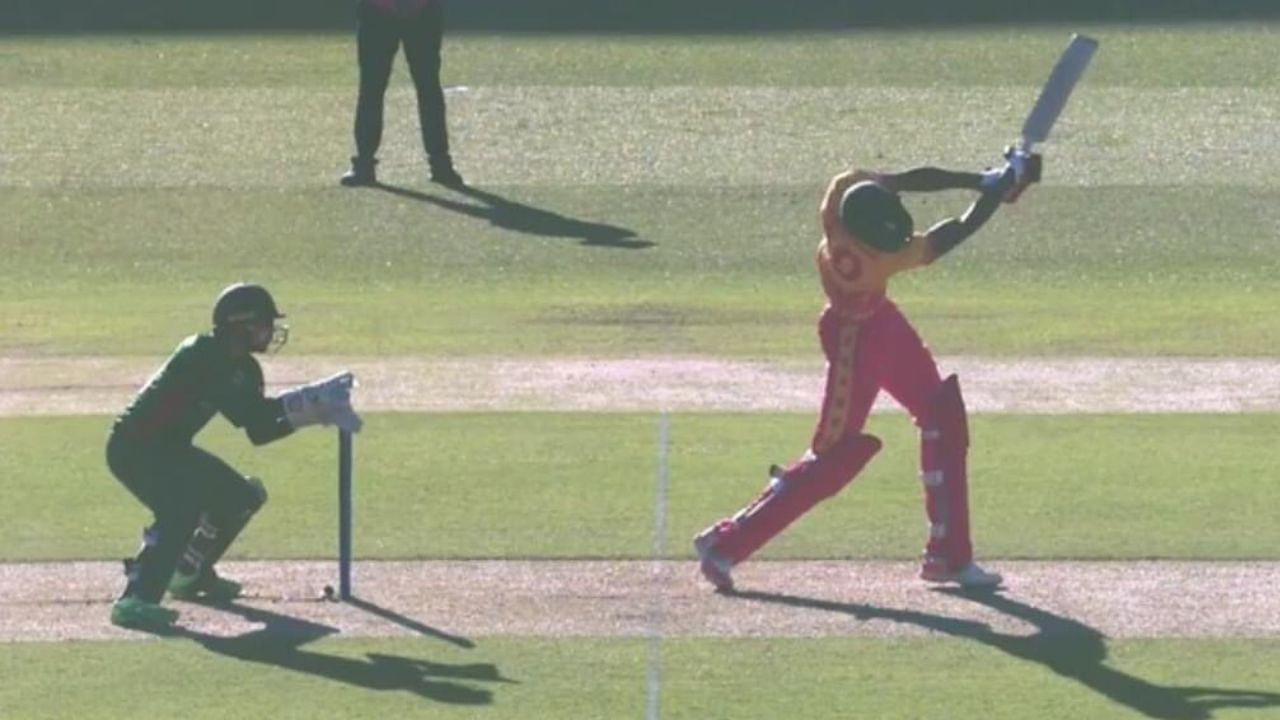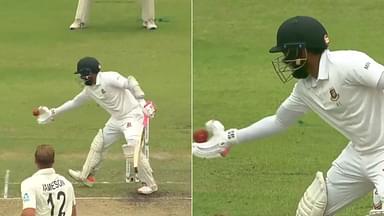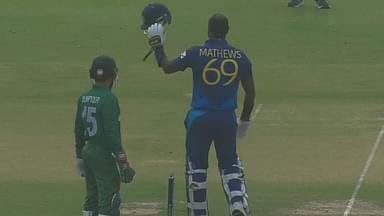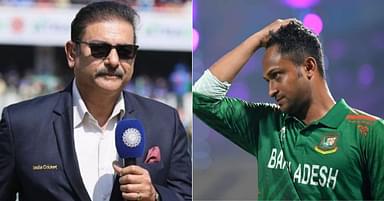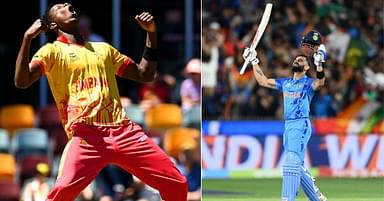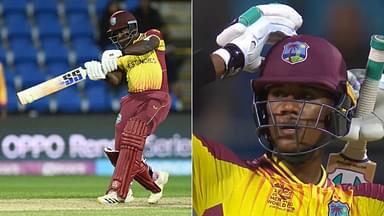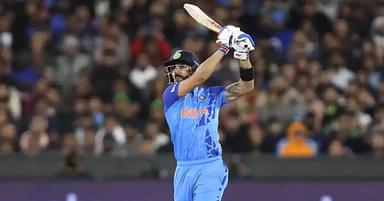Bangladesh vs Zimbabwe ICC T20 World Cup Super 12 match at the Gabba witnessed an unaccustomed climax which ended up giving the latter an unsuccessful chance of sealing a 151-run chase. An oddball situation transpired when players of both the teams were called back to the ground to finish the match despite their involvement in post-match activities.
Advertisement
Forget just cricketers shaking hands after the match, even the groundsmen had entered with appropriate lawn mowers to start preparation for the next match at this venue tomorrow.
No better reality TV than sport. Couldn’t script this stuff. #T20WorldCup
— Scott Bailey (@ScottBaileyAAP) October 30, 2022
Why were Bangladesh and Zimbabwe called back to finish match due to Mosaddek Hossain no ball at Perth Stadium?
An unprecedented confusion had erupted primarily due to Bangladesh all-rounder Mosaddek Hossain bowling a no-ball. Bowling from round the wicket in his attempt to defend five runs off the last ball, Hossain not only managed to bowl a dot ball but also assumed to have dismissed Blessing Muzarabani (0*) via a stumping by wicket-keeper Nurul Hasan.
Not caring about the dismissal, both the batters and all the 11 fielders presumed a dot ball and rightly so before walking out of the ground. Doing their usual job of checking replays for a stumping dismissal, it was at this time when the on-field umpires observed a no-ball after consultation with third umpire Chris Gaffaney.
In what neither a foot no-ball nor one due to less than four fielders outside the 30-yard circle, it was a rare instance of Hasan collecting the ball in front of the stumps. With the same not being allowed for a keeper, Hasan’s error resulted in a free-hit for Muzarabani who failed to hit a boundary for the second consecutive time on almost a replica delivery.
ALSO READ: Brad Hogg approves game-changing Shakib Al Hasan run-out in a crunch situation
According to MCC’s Law 27.3.1, “The wicket-keeper shall remain wholly behind the wicket at the striker’s end from the moment the ball comes into play until a ball delivered by the bowler: touches the bat or person of the striker or passes the wicket at the striker’s end or the striker attempts a run.”
The subsequent law (27.3.2) states that an umpire shall call and signal a No ball as soon as applicable after the delivery of the ball if the wicket-keeper contravenes the above mentioned law.

